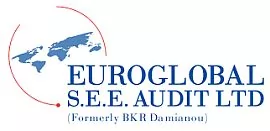During this current volatile economic era we are facing, a growing need has developed for a constant transparent dialogue between the various stakeholders and organizations. An increased level of involvement and commitment is expected from audit committee's in their oversight of risk assessment and management, appraisal of reliable and accurate financial information and safeguarding of an effective internal control environment is required. In the past committee members often may not have demonstrated a hands on participation and commitment in fulfilling their role but stakeholders are now demanding the evolution of communication lines with those charged with governance, expecting detailed analysis and forecasts in anticipation of what lies ahead on a broader coverage of risks, and emerging threats to further understand the impact of the financial crisis.
The nature and purpose of an internal control function is to act as an independent, objective assurance and consulting activity which is designed to add value and improve operational efficiency and effectiveness. The primary concern directors are often faced with, is that the quality of information they receive does not give them a clear and concise picture of risk exposure, performance and compliance. Consequently, the establishment and maintenance of an active audit committee and diligent internal audit department, has become not only a necessity but a most valuable and crucial source of qualitative information. The success of which to be truly effective, and maintain its objectivity and independence to execute its intended function, is primarily dependent on the organizations overall control environment approach and culture.
One of the primary goals of an audit committee is to provide executive management with a holistic view on exposures to general economic and organisation specific risks, evaluate the magnitude of a potential adverse impact they may have and assess if adequate procedures and systems are in place to evaluate and manage risk exposure. A thorough understanding of the correlation between overall corporate strategy and risk exposure is a key factor for any business operation. Risk assessment and management is clearly a very complex and multi-dimensional ongoing exercise to overcome. Whether financial, strategic, technological, operational, associated with fraud or related to compliance, risks constantly prowl throughout an organisation, however, best practice organisations are not those that can do the impossible and eliminate risk entirely, but those that understand and mitigate their potential exposure to the particular risks they are facing, by implementing appropriate risk assessment and management systems to address potential weaknesses and deficiencies identified.
To accommodate the increased pressures on organisations and the demanding expectations for effective corporate governance, a response is needed to witness boards of directors and audit committees adopt a more aggressive approach, implement proactive measures and actions as a result of more rigorous discussions and review of risk management systems, monitor and evaluate financial information extensively, question and test assumptions of strategic decisions, and nurture a competent reliable internal control environment.
Evidence that boards of directors and audit committees are being mobilized to consistently monitor operational, financial and compliance concerns, has begun to surface. The scope of audit committees and internal audit departments is likely to vary from business to business but the underlying principles for their establishment bestow a disciplined approach to evaluate and improve the effectiveness of risk management, control and governance process. Small and medium sized companies which currently lack the necessary resources are not lost at bay and they can seek the guidance of experts to consult or even possibly outsource these functions to business consultants and advisors with the relevant experience and expertise.
Turbulent economic times have brought about challenges that require changes, decisions to be made and adopted by those charged with governance to facilitate the necessary housekeeping, ultimately take the reigns and navigate their organizations to safe harbour.
The content of this article is intended to provide a general guide to the subject matter. Specialist advice should be sought about your specific circumstances.

